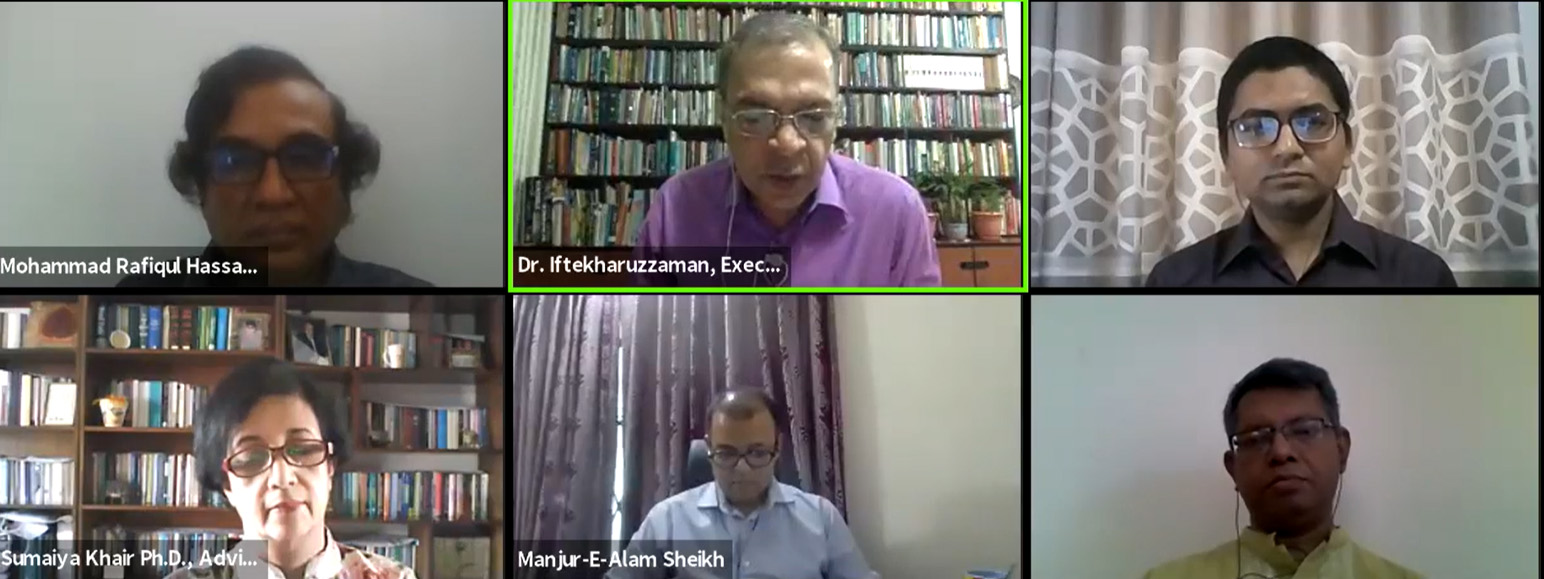Published: 02 September 2020

With the backing of a section of political leaders and corrupt officials from different law enforcement agencies, old Dhaka’s chemical business is still running, exposing its dwellers to deadly fire incidents like the last year's Churihatta blaze in Chawkbazar, finds TIB study.
The study identifies that after the Churihatta fire incident in 2019, renewing licenses of chemical business continues in old Dhaka by unfair means under political influence.
The report says some political leaders obtain licenses under their names without even owning the business they have permits for. Later, in exchange of money, they let business persons use the licenses.
The study also shows that the risky chemical warehouses in old Dhaka couldn’t be relocated due to corruption and lack of coordination among concerned government offices and political clout.
TIB unveiled the research study titled “Nimtoli, Churihatta and Afterwards: Governance Challenges in Ensuring Fire Safety in old Dhaka and Way-out” on 3 September 2020 at a virtual press conference.

Aimed at looking into the performance of relevant ministries and departments, progress of implementation of recommendations followed by fire incidents and reviewing fire safety initiatives in old Dhaka, the study finds significant deficiencies in all six governance indicators of the study i.e. capacity, coordination, transparency, participation, accountability, irregularities, and corruption.
Speaking at the conference, TIB Executive Director Dr. Iftekharuzzaman said, "Lack of good governance is acute among the relevant institutions which are responsible for the recurrence of fire tragedies like Nimtoli and Churihatta. Similarly, lack of political will is also evident when it comes to removing the chemical warehouse from old Dhaka.”
The study found that the bribe for issuing licenses ranges from BDT 20,000-30,000 in Department of Environment, BDT 1,50,000-2,50,000 in Department of Explosives, BDT 3,000-12,000 in Fire Service and BDT 1,500-18,000 in city corporation.
Besides, flammable matters are imported and carried to the warehouses openly, and the law enforcement agencies take BDT 300 to release each vehicle.
The study further revealed that no legal action had been taken so far against the illegal chemical warehouses and the culprits of the Nimtoli and Churihatta tragedies, although they were identified.
Earlier, the High Court issued a show-cause notice to relevant authorities asking why the chemical warehouses would not be removed from old Dhaka. But no government agencies have replied to the notice even after ten years of the order. Similarly, when the Department of Environment files cases, they do not get due support from the local police station to investigate the offenders.
Moreover, the study finds that compensating the accident victims has not been addressed with importance. There is still no guideline for compensation, and the victim families of Nimtoli and Churihatta tragedies have not yet been properly compensated.
Referring to the study, Dr. Zaman said, “None of the accidents at Nimtali and Churihatta was isolated. Almost all the institutions responsible for preventing these accidents have failed in their duties. The lion's share of instructions by the task force remain unimplemented, so there will be nothing to be surprised if such a fire incident is repeated. Concerned institutions continue to disobey government directives. Such incidents are a clear example of lack of good governance and immorality.”
He concluded by saying that those responsible for implementing the directives of the task force should be held accountable; otherwise, it won’t be possible to prevent the recurrence of such accidents.
Recommendations
The study recommended necessary steps to ensure adequate compensation to the victim families of the previous incidents with rehabilitation.
Other recommendations included --- formation of a national chemical safety committee with members from concerned institutions and experts and formulation of a guideline and policy on chemical safety; awareness-raising programmes for the citizens, ensuring participation of locals in relocating chemical warehouses; and ensuring proper legal actions against those liable for delaying the implementation of recommendations made by the inquiry committee and the task force.
Conducted by TIB Outreach and Communication Director Sheikh Manjur-E-Alam, Research & Policy (R&P) Deputy Programme Manager Mostafa Kamal presented the research findings at the conference.







